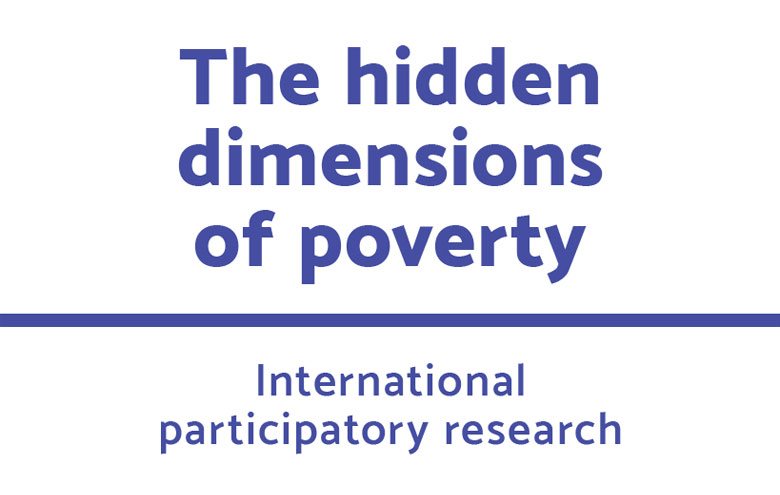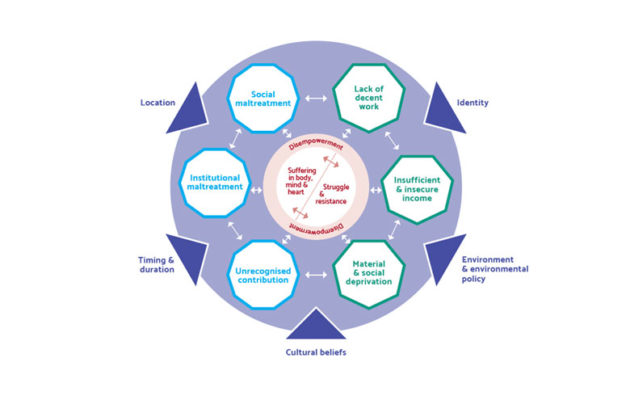What is Poverty? Who Decides How We Define Poverty?

What is poverty? Who decides how we define poverty? To answer these and other questions relate to poverty, ATD Fourth World, in partnership with Oxford University, conducted a participatory international research project called “The Hidden Dimensions of Poverty”. The project took place in six countries: Bangladesh, Bolivia, France, Tanzania, the United Kingdom and the United States.


Play with YouTube
By clicking on the video you accept that YouTube drop its cookies on your browser.
For three years, people living in poverty, professionals and academics worked together to clarify how we define poverty and its multi-dimensional aspects. Research teams defined nine interdependent dimensions common to all six countries. The long-term goal of this project is to help develop better policies to eradicate poverty.
Download the full “The Hidden Dimensions of Poverty” report.
Read more about this research and the nine dimensions of poverty:
- Three Dimensions That Make up the Core Experience of Poverty: Disempowerment, Suffering in body, mind and heart and Struggle and resistance
- Lack of Resources Prevents People from Living with Dignity: Lack of decent work, insufficient and insecure income and material and social deprivation.
- Relational Dynamics Shape the Experience of Poverty: Institutional maltreatment, social maltreatment and unrecognised contributions.
“Being a victim of prejudice, first considered as poor, but not as a human being. Having the label of poor. There is a duality: on the one side, people living in poverty are invisible. On the other hand they are visible because they are stigmatised.”
(Academic peer group, France)


